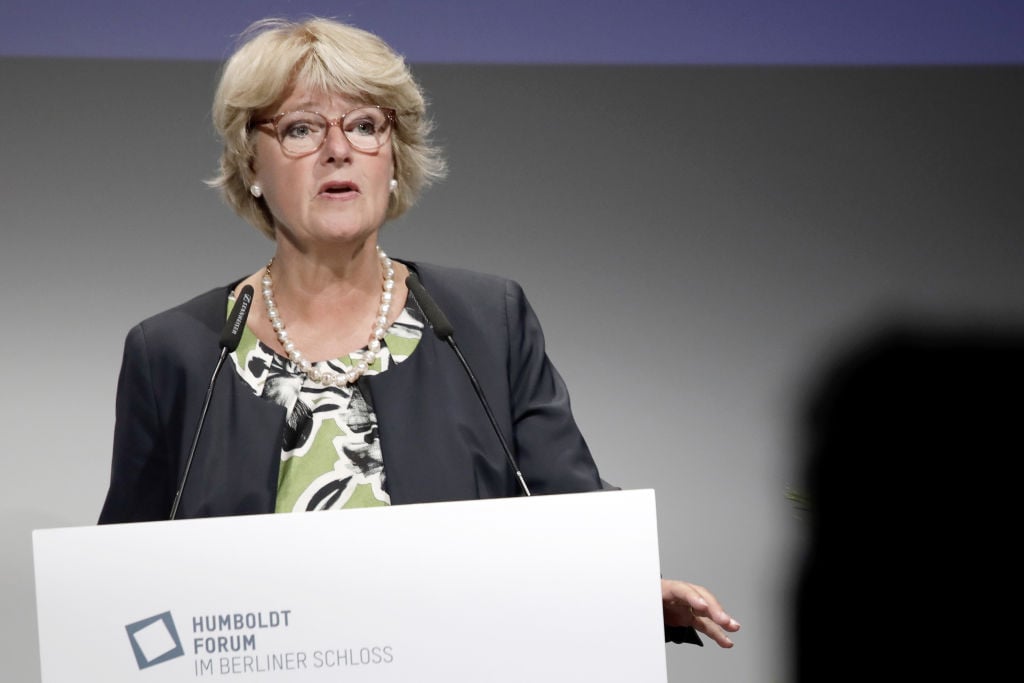
The German government has agreed to dole out another billion euros to boost its cultural industry, which has been under lock and key since last fall.
On Thursday, February 4, the culture ministry held a press conference in the currently shuttered Martin-Gropius-Bau museum to announce a second injection of money into the arts. Museums like the Gropius Bau have been closed since November 1; commercial art galleries followed suit the following month as the country worked to beat back rising infection rates.
This marks the second chapter of the so-called “Neustart Kultur” program (New Start Culture), which was first launched last July with a bailout of €1 billion dispersed across cultural sectors in the nation of 83 million. The program consists over 60 sub-programs and supports cinemas, museums, theaters, and other venues and creatives. The goal is to offer artists and arts organizations subsistence measures and to stimulate investment in innovation and digitization.
Yesterday, February 3, after a five-hour negotiation, coalition leaders came to an agreement to offer €1 billion for a new round of rescue money, in addition to other measures that would help families, low-earners, and the economy in general. In a statement shared after the meeting, they noted that the cultural sector has been “especially affected” by the pandemic.
Grütters described the second round of funding as a “signal of solidarity with the creative [industry]” that shows an “appreciation of culture” and will set an example internationally. The aid, however, falls within the bell curve of its European counterparts. In July last year, the UK announced a £1.57 billion (€1.79 billion) grant to the cultural sector and France said it would be handing out €2 billion for the industry in September. (The US continues to trail far behind.)
“Above all, the second culture billion sends a sign of hope and encouragement to the cultural scene that has been struck in its vital nerve,” Grütters added in a statement.
In late January, Grütters told press that she wanted another €1.5 billion for a new round of the program, reasoning that the initial bundle did not address the second lockdown that began last fall.
At the end of last month, the current lockdown, which called for all non-essential businesses to close, was extended to February 14.
The German Museums Association and other museum leaders have been pushing the government to offer an effective reopening strategy. The German Museums Association did not immediately respond to a request for comment on the latest bailout.
The German Art Dealers Association welcomed the news. “If the pandemic also has a positive effect, it is in the cultural sector that the political decision-makers have developed a sensitivity and understanding of the economic situation and the social importance of the artists and mediators,” chairman Christian Jarmuschek told Artnet News.